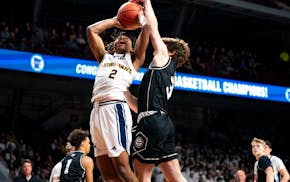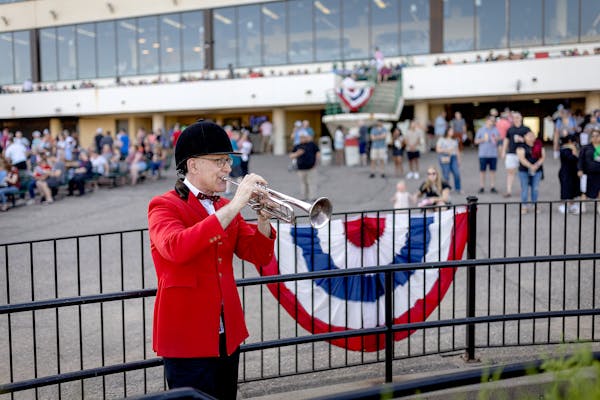The Minnesota Racing Commission voted Monday to approve an additional form of gaming, historical horse racing, at Canterbury Park and Running Aces.
Historical horse racing (HHR) is a machine-based game that allows users to wager on past horse races. It has been used in several other states to generate additional money for live racing purses. In January, Canterbury and Running Aces asked the commission to approve on-track advance deposit wagering on HHR, which they argued it could do without legislative approval.
The commission was not expected to make a decision at Monday's meeting. But after more than 3½ hours of discussion, including emotional testimony from Minnesota horse owners and breeders worried about the survival of their sport, it voted 5-1 to approve HHR, effective May 21.
"We are at a critical crossroads," said commissioner Raymond Dehn, who voted yes. "There is a lot at stake."
The Minnesota Indian Gaming Association (MIGA) and the Shakopee Mdewakanton Sioux Community (SMSC), which operates Mystic Lake Casino, both spoke against the proposal and could pursue legal action to block HHR. One sports betting bill being discussed at the state legislature, the House version, also would prohibit HHR.
Andy Platto, MIGA's executive director, called the vote "an extreme violation of legislative authority." He said the group "will be looking at all available options" to stop the tracks from adding the games, which he described as "just like slot machines."
Canterbury's daily purses dropped 21% last season after the end of a 10-year deal with SMSC that added more than $7 million per year to the purse fund. The lower purses attracted fewer horses, leading to a 42% decline in wagering. Uncertainty about purses has decimated Minnesota's thoroughbred breeding industry, with only 78 foals — the lowest number ever — registered last year.
Monday's vote would allow 500 HHR terminals at each track. A study commissioned by the tracks estimates that in its second year, HHR would generate $5.9 million for purses, plus money for the state breeders' fund, retired racehorse programs and regulatory costs.
The commission voted to make its approval of HHR effective the day after the legislative session ends, in the hope that the tracks and tribes might negotiate while sports betting bills are being debated. It proceeded with the vote despite a requirement to consult with the tribes; the commission has requested a meeting, but it has not happened yet.
The current sports betting bills would allow only the tribes to conduct sports wagering. The House bill would give the tracks a $625,000 stipend to share, while the Senate bill would give them an amount capped at $3 million per year.
Track representatives and horsemen said Monday that racing could end in Minnesota without additional purse funding. Rick Bremer of Lake City, who has raced and bred racehorses for 30 years, said he is "desperately concerned this industry is going to die," adding that HHR "would have a substantial impact on breeders."
The HHR terminals proposed for Canterbury Park and Running Aces would offer pari-mutuel wagering, with the same type of bets allowed on actual races at the tracks. While track representatives argued they are "games of skill," since players can use handicapping information to place their bets, representatives for the tribes said HHR is a gambling device and game of chance that the commission cannot authorize.
Gophers football recruiting tracker: It's 'Summer Splash' time for P.J. Fleck

Vikings, GM Kwesi Adofo-Mensah agree to contract extension

Basketball: Purdue, Iowa State among colleges pursuing Totino-Grace rising junior Malachi Hill
Carlos Correa sees offensive surge after slow start

